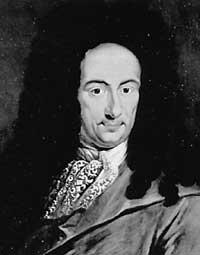Gottfried Wilhelm LEIBNIZ
German philosopher, mathematician, writer and politician saw the light in Leipzig in 1646. He was very quick and his teachers said his curiosity was insatiable. At age 12 he knew how to speak Latin, was able to understand Greek and knew the philosophy of Aristotle. In the opinion of many, having reached all levels has led him not to make a fundamental contribution in the same area.
In 1661 he studied law at the University of his hometown and is engaged in mathematics. In 1663 he presented his thesis entitled Disputatio metaphysica of individual principle. That same year he began studying mathematics, jurisprudence and history. In 1664 he began to teach philosophy, defending that the principles of law are directly related to philosophy and the equilibrium of the universe.
In 1666 he published De arte combinatoria on differential calculus. He attempted to create a new alphabet of human thoughts, whose combination was the origin of all manifestations of reason.

In the following years he trained in the tasks of politics as an assistant to the Count of Boynerburg. In 1672 he moved to Paris with diplomatic tasks. There he had the opportunity to contact Melebranche, Arnauld and the Cartesian thinkers. He also knew in the same city the most important theories of Huygens and the mathematics of the time. In 1673 he moved to London. There he also met many philosophers, mathematicians and scientists and joined the Royal Society. However, it was there that he presented the calculator of sums, rests, multiplications and divisions, more complete than Pascal invented.
In 1676 he discovered the infinitesimal calculus, although Newton described this idea years earlier. This caused a great scandal between the followers of Newton and Leibniz. Although Leibniz was accused of plagiarism, in 1684 he published the new method of determining maximums and lows among the scientists of the time.
In 1700, based on the model of the Royal Society of London, he participated in the creation of the Berlin Academy of Sciences and became its first president. That same year he was appointed to the Paris Academy of Sciences along with Newton, being the first two non-French.
He was an assistant to the Duke of Hanover and for many years was responsible for his magnificent library.
With political changes, their sponsors lost their support in the last years of their lives. Abandoned and almost forgotten by all, he went to Hannover in 1716 in search of a hero.





